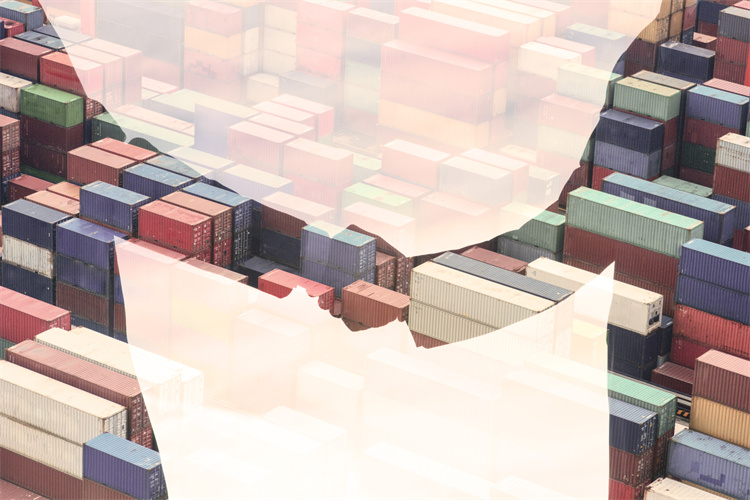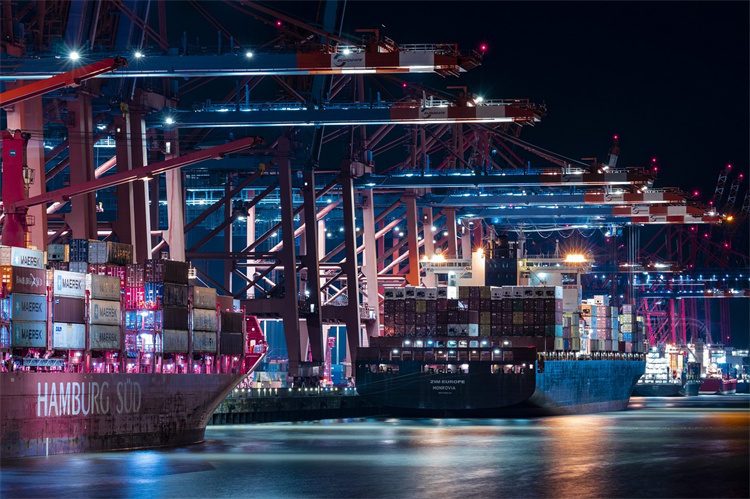Ensuring Compliance in Mexico's Supply Chain Operations Made Easy

Ensuring compliance in Mexico's supply chain operations is essential for businesses aiming to thrive in this dynamic market. The country's regulatory landscape presents unique challenges, as shown below:
Compliance Risk | Description |
|---|---|
Mexico's regulatory landscape is characterized by a complex web of federal, state, and local regulations, making it challenging for businesses to stay fully compliant with all requirements. | |
Frequent Regulatory Changes | Regulations in Mexico can change frequently, requiring businesses to stay updated and adapt swiftly to changing requirements. |
Language Barriers | Language barriers can hinder businesses without Spanish-speaking staff or legal expertise from interpreting and complying with local regulations. |
Corruption and Bribery | Some regions in Mexico may face issues related to corruption and bribery, complicating compliance efforts and exposing businesses to legal and reputational risks. |
Customs and Trade Regulations | For businesses engaged in international trade, complying with customs and trade regulations, including tariff classifications and import/export documentation, can be challenging. |
Non-compliance can lead to severe consequences, including:
Business shutdowns for labor law violations.
“It will be necessary to prepare the administrative, financial, legal, and technological departments of every business moving cargo,” said Carlos M. Sesma Jr., partner at Sesma, Sesma & McNeese law firm.
By addressing these risks and adhering to compliance with Mexican business law, companies can avoid disruptions and achieve sustainable growth. This blog offers actionable strategies to simplify supply chain localized compliance in Mexico.
Understanding Supply Chain Localized Compliance in Mexico

Key Legal and Regulatory Frameworks
Customs and Trade Regulations
Mexico's customs and trade regulations play a pivotal role in supply chain localized compliance in Mexico. Businesses must adapt their logistics strategies to meet new tariffs and documentation requirements. For instance:
Companies must comply with the Miscellaneous Tax Resolution 2021, which mandates verifying the legal possession of transported goods.
Adopting real-time visibility platforms helps track goods, identify risks, and streamline record-keeping.
AEO (Authorized Economic Operator) programs certify businesses as trusted parties, reducing trade delays.
Preparing administrative, financial, and technological departments is essential for businesses moving cargo. Efficient information exchange systems can simplify compliance.
Labor Laws and Worker Protections
Mexico enforces strict labor laws to protect workers' rights and ensure fair treatment. These laws cover employment contracts, wages, and working conditions. Non-compliance can result in severe penalties. Key labor protections include:
Key Labor Laws and Worker Protections | Description |
|---|---|
Federal Labor Law | Governs employment contracts, wages, and working hours. |
Severance Pay | Requires three months' salary plus 20 days of pay per year of service for unjustified dismissals. |
Mandatory Benefits | Includes a 15-day Christmas bonus and profit-sharing of 10% of pre-tax profits. |
Working Hours | Standard workweek is 48 hours, with overtime paid at 200% or 300% of the standard rate. |
Paid Leave | Provides six vacation days after one year, increasing incrementally, plus seven paid public holidays. |
Environmental and Sustainability Standards
Environmental regulations in Mexico ensure sustainable industrial practices. Businesses must secure an Environmental Operating License and submit an Impact Statement detailing potential ecological effects. Key laws include:
Law Name | Year Enacted | Purpose |
|---|---|---|
General Law on Ecological Balance and Environmental Protection | 1988 | Mandates environmental impact assessments for industrial activities. |
Federal Law on Environmental Liability | 2013 | Promotes corporate responsibility for environmental harm. |
Renewable Energy Law | 2008 | Targets 35% energy generation from renewable sources. |
Industry-Specific Compliance Requirements
Manufacturing in Mexico: Key Regulations
Manufacturing operations must adhere to strict standards to maintain regulatory compliance. Businesses must monitor emissions, conduct environmental impact studies, and comply with workplace safety standards. Employers must also establish Health and Safety Commissions to investigate incidents and propose preventive measures.
Automotive and Aerospace Sector Compliance
The automotive and aerospace industries face unique compliance challenges. These include stricter environmental regulations, data protection laws, and updated workplace safety standards. For example:
Compliance Challenge | Description |
|---|---|
Environmental Regulations | Enforces limits on greenhouse gas emissions and waste management. |
Data Protection | Requires cybersecurity measures to safeguard sensitive data. |
Workplace Safety | Mandates updated safety standards for hazardous materials and heavy machinery. |
Food and Beverage Industry Standards
The food and beverage sector must comply with NOM-051-SCFI/SSA1-2010 for product labeling and COFEPRIS regulations for health and safety. The Secretary of Economy publishes trade rules to ensure compliance with these standards.
Businesses in this sector must prioritize transparency and safety to meet consumer expectations and regulatory demands.
Key Challenges in Setting Up a Factory in Mexico

Navigating Complex Customs Processes
Import/Export Documentation Requirements
Businesses setting up a factory in Mexico must navigate intricate customs processes. Proper documentation is essential for customs compliance. The following documents are typically required:
Customs Declaration Form (Pedimento de Importación) for clearance.
A commercial invoice in Spanish accompanying the declaration.
A bill of lading to verify shipment details.
Guarantee of payment documentation for undervalued goods, if applicable.
Compliance documents with Mexican product safety regulations.
Registration with the Official Register of Importers (Padrón de Importadores).
A NAFTA Certificate of Origin for preferential treatment under trade agreements.
Failure to provide accurate documentation can lead to delays and penalties, disrupting manufacturing timelines.
Tariffs and Duties
Understanding tariffs and duties is critical for businesses. Mexico offers programs like the Sectoral Promotion Program (PROSEC), which reduces tariffs on inputs for export manufacturing. However, businesses must also account for:
Tariff/Duty Type | Description |
|---|---|
Customs Processing Fee (CPF) | Exempt for USMCA-compliant products but applies to temporary imports. |
Value-Added Tax (IVA) | 16% on most transactions, with exemptions for basic goods. |
Special Taxes (IEPS) | Ranges from 25% to 160% on specific imports like alcohol and junk food. |
These costs can significantly impact profitability if not managed effectively.
Adhering to Labor Laws
Minimum Wage and Benefits Compliance
Mexican labor law mandates compliance with minimum wage and benefits requirements. As of January 2025, the daily minimum wage is:
MX$278.80 (US$493 per month) for most regions.
MX$419.88 (US$742 per month) in the Northern Border Free Zone.
Employers must also provide:
200% pay for official holidays.
A 15-day Christmas bonus.
Social security contributions covering sick leave, maternity leave, and retirement benefits.
Meeting these obligations ensures legal compliance and fosters a positive work environment.
Worker Safety and Health Standards
Health and safety standards are critical for factory operations. Employers must:
Maintain compliance with strict safety regulations.
Conduct regular training for employees.
Establish protocols for workplace hazards.
The Ministry of Labor conducts inspections to ensure adherence. Non-compliance can result in penalties or operational shutdowns.
Meeting Environmental Regulations
Waste Management and Recycling Standards
Factories must adhere to waste management protocols to minimize environmental harm. Key requirements include:
Licensing: Obtain a license for hazardous waste generation.
Tracking: Monitor waste from generation to disposal.
Storage: Follow regulations for safe storage.
Penalties: Non-compliance can lead to fines, project suspension, or criminal charges.
These measures ensure accountability and environmental sustainability.
Emissions and Pollution Control
Mexico enforces strict pollution control laws under the General Law of Ecological Equilibrium and Environmental Protection (LGEEPA). Factories must:
Monitor air and water quality.
Submit annual emissions reports.
Invest in equipment to meet regulatory standards.
Compliance with these regulations supports sustainable manufacturing and strengthens international relations.
Strategies for Simplifying Compliance with JUSDA in North America
Leverage Local Expertise
Partnering with Local Consultants
Partnering with local consultants offers businesses a strategic advantage in navigating Mexico's complex compliance landscape. These professionals provide tailored solutions to address regulatory challenges.
Benefit | Description |
|---|---|
Local consultants help businesses tap into a skilled workforce, easing recruitment challenges. | |
Focus on Core Business Activities | Outsourcing administrative tasks allows companies to concentrate on production and innovation. |
Risk Mitigation | Consultants reduce financial and operational risks associated with international expansion. |
Strategic Networking Opportunities | They connect businesses with local authorities and market players, fostering valuable partnerships. |
Streamlined Customs Management | Consultants simplify customs processes, ensuring compliance with regulations. |
Building Relationships with Mexican Authorities
Building strong relationships with Mexican authorities ensures smoother compliance processes. Local experts facilitate communication and help businesses adhere to labor laws, environmental regulations, and trade requirements. This collaboration minimizes delays and fosters trust between businesses and regulatory bodies.
Tip: Effective communication in Spanish and a proactive approach to regulatory updates can significantly enhance compliance efforts.
Use Shelter Services
Benefits of Shelter Companies
Shelter companies simplify compliance by managing administrative and regulatory tasks for foreign manufacturers. Key advantages include:
Reduced risk through management of HR, accounting, and legal compliance.
Lower costs due to government incentives and economies of scale.
Higher employee retention by leveraging local labor market insights.
Improved productivity by allowing businesses to focus on core operations.
How Shelter Services Simplify Compliance
Shelter services provide a comprehensive platform for foreign manufacturers. They handle import/export processes, secure permits, and administer the IMMEX program. These providers also ensure compliance with labor laws, tax regulations, and customs requirements. By managing these complexities, shelter services allow businesses to concentrate on production and growth.
Adopt Technology Solutions
Compliance Management Software
Compliance management software centralizes compliance efforts and enhances efficiency. It includes features like automated inventory tracking, reporting tools, and risk reduction frameworks. For example:
Feature | Benefit |
|---|---|
Tracks temporary imports effectively under the IMMEX Program. | |
Reporting Requirements | Provides necessary reports for inventory management compliance. |
Risk Reduction | Minimizes tax penalties and loss of import duty reduction programs. |
Certification Maintenance | Ensures IMMEX certification compliance. |
Digital Tools for Customs and Trade Compliance
Digital tools streamline customs and trade compliance by providing real-time visibility and automation. Platforms like FourKites enhance transparency, improve communication among supply chain partners, and facilitate record-keeping. Customs management software ensures documentation accuracy and reduces human error, optimizing import/export processes.
Note: Choosing the right warehouse location and evaluating warehouse locations are critical when integrating technology solutions to meet unique considerations for warehousing in Mexico.
Understanding and addressing compliance requirements in Mexico is essential for businesses aiming to succeed in this competitive market. Companies must navigate a complex regulatory environment, continuously monitor compliance efforts, and invest in legal expertise to ensure smooth operations. Proactive strategies, such as leveraging local expertise, adopting shelter services, and utilizing advanced technology, simplify compliance and enhance operational efficiency.
JUSDA in North America offers tailored solutions to address these challenges, particularly for industries like manufacturing in mexico. By providing tools like compliance management systems and customs software, JUSDA helps businesses streamline processes and reduce risks. These strategies not only ensure adherence to regulations but also foster long-term growth.
Businesses should take actionable steps to secure compliance. Performing risk assessments, documenting findings, and implementing continuous monitoring systems are critical. Proactive compliance strategies also help avoid penalties, build a motivated workforce, and support operational stability. Companies that prioritize compliance can thrive in Mexico's dynamic supply chain landscape.
Tip: Staying informed about regulatory changes and fostering relationships with local authorities ensures ongoing success in manufacturing in mexico.
See Also
The Definitive Guide to JUSDA's Supply Chain Quality
Transforming Supply Chain Sustainability Through JUSDA Innovations
Achieving Supply Chain Resilience Success with JUSDA
Understanding JUSDA's Leading Solutions in Supply Chain Management
Enhancing Efficiency with JUSDA's Comprehensive Supply Chain Insights
